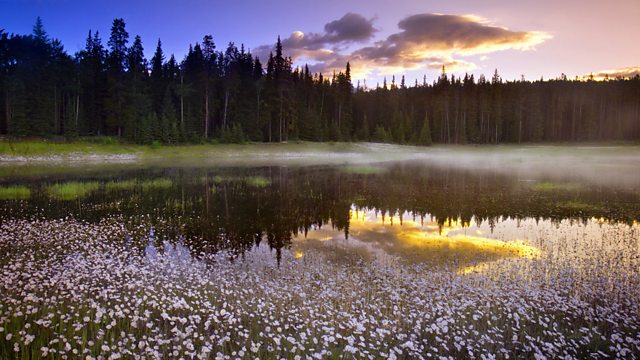The lady, her camera, and the Broadland birds: The remarkable story of Emma Turner, a pioneering bird photographer and her amazing bittern discovery.
In 1911 a photograph of young Bittern in the nest taken by Emma Turner proved that Bitterns were breeding again in Norfolk having been driven to extinction in Britain in the late 1800s. Using extracts from her book, 'Broadland Birds', this programme tells the remarkable story of Emma Turner a pioneer of bird photography (1866-1940); who spent some 20 years at Hickling Broad in Norfolk, where she lived on a houseboat she designed named 'Water Rail' (after the first photograph she took in the Broadlands) and in a hut on a tiny island amongst the reeds (which became known as Turner's island). After meeting and being inspired by Richard Kearton (who along with his brother Cherry Kearton was one of earliest wildlife photographers) she decided to take up wildlife photography and to document all the Broadland birds. She befriended two marshmen, Alfred Nudd and keeper Jim Vincent, and with their help she learned the ways of the marsh, and how to find, study and photograph the Broadland birds. It was Vincent who helped her find the young Bittern in 1911. She was awarded the Gold Medal of the Royal Photographic Society for her photograph of the bird. Emma Turner was not only a pioneer bird photographer but a hugely respected ornithologist, whose studies of birds contributed enormously to our knowledge today. She died in 1940 with many accolades including having been one of the first ten women to be elected a fellow of the Linnaean Society and the first honorary ladies member of the British Ornithologists' Union.
Sound recordings by wildlife sound recordist Chris Watson.
Producer Sarah Blunt.
Last on
More episodes
Broadcasts
- Tue 24 Jan 2012 11:00Βι¶ΉΤΌΕΔ Radio 4
- Thu 26 Jan 2012 21:00Βι¶ΉΤΌΕΔ Radio 4
Featured in...
![]()
A Life in Sound: Chris Watson
A selection of progammes and soundscapes featuring sound recordist Chris Watson.


